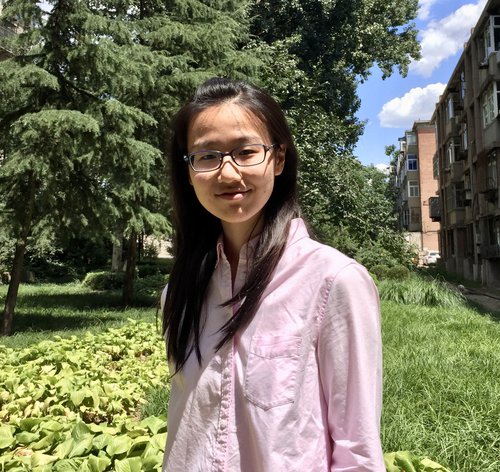by Laura Wallis
Standardized reading tests are the primary tool in the school psychologist’s arsenal for gauging reading comprehension issues and learning disabilities. But they are an imperfect tool, as they do not reveal anything about the process a child uses to read—where they look, for instance, what they focus on, or how often they are rereading a given word or passage. Eye movement tracking can provide that information much more directly and immediately than a test score can.

Linda Sun, an assistant professor in the psychology department, has received a year-long grant from the Society for the Study of School Psychology (SSSP), to support her study examining the differences in eye movement and reading comprehension behaviors between children with learning difficulties and those with average reading skills—a comparison that has not been extensively explored in similar studies. “Learning more about this can help us fine-tune our understanding of learning difficulties in young readers,” Sun says.
Children from the local community will be invited, with their parents, to participate in the study, by reading on computers in the lab while an eye tracker tracks the movements of their eyes on screen. They will use various formats of reading tests, including fill in the blank, and stories with and without pictures, to examine the differences in how children read across different formats. Additionally, college students will be recruited to take part. “We hope to take a strength-based perspective to investigate the skills that college students with learning difficulties have developed to succeed academically,” says Sun.
The SSSP grant has a cross-institution mentorship component, and Sun is working in collaboration with her mentor, Dr. Katherine Binder of Mount Holyoke College — along with both graduate and undergraduate Syracuse students, and a local high school student volunteer — on the study, which is currently in the planning stages. They expect to begin recruiting participants this spring.
SSSP invites proposals for the Early Career Research Award each spring. The major goal of the award is to “support projects that are innovative; have the potential of advancing the science of school psychology by producing new knowledge or empirical findings; and incorporate methods that are rigorous, replicable, and clearly delineated.” Applications are due April 1.
